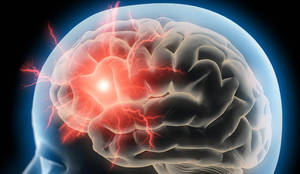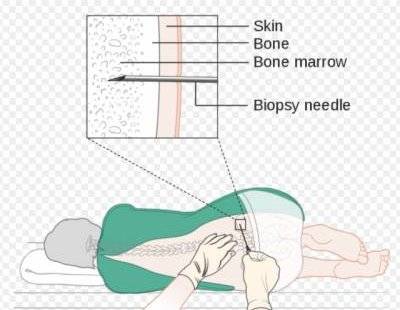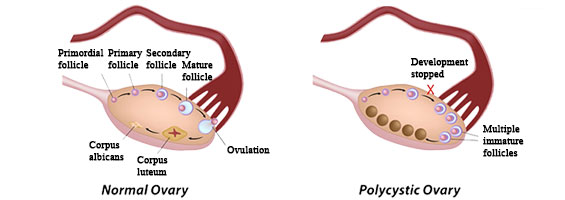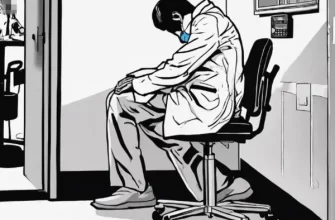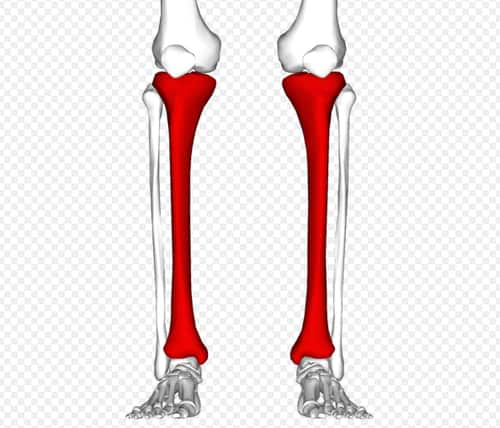Shooting pain in the head is a sudden, severe, and intense pain in the head that may occur regularly or occasionally. Experiencing shooting pain in the head can significantly impact an individual’s everyday routine, hindering their ability to focus and carry out regular activities. Therefore, it is crucial to comprehend the reasons behind this type of pain and learn effective techniques to manage it.
What is shooting pain in the head?
Shooting pain in the head is characterized by a shooting or stabbing sensation that lasts for seconds to a few minutes. The pain can manifest in various parts of the head including the front, the sides, or the rear. It can be characterized as a piercing sensation resembling an electric shock or an abrupt, startling ache that might give the sensation of the head being tightly squeezed.
Common causes of shooting pain in the head
The most common causes of shooting pain in the head include:
- Migraine headaches
- Cluster headaches
- Trigeminal neuralgia
- Occipital neuralgia
- Sinus headaches
- Tension headaches
- Barometric pressure changes
Other factors that may trigger shooting pain in the head include stress, fatigue, dehydration, alcohol consumption, and certain food triggers.
Understanding the causes of shooting pain in the head can help individuals manage and treat their symptoms effectively. It is crucial to seek medical attention if the pain becomes persistent or affects daily life.
Shooting Pain in the Head: Understanding the Causes and Management
Shooting pain in the head may be caused by different factors such as migraines, tension headaches, or neuralgia. Several triggers may include stress, fatigue, dehydration, alcohol, or food. It is important to seek medical attention if the pain persists. Treatment options range from medication, lifestyle changes, to avoiding triggers.
Migraine Headaches
Symptoms of Migraine Headaches
Migraine headaches may last from hours to days, causing throbbing pain accompanied by nausea and light/sound sensitivity.
Treatment Options for Migraine Headaches
Treating migraines involves medications, lifestyle changes, and trigger avoidance. A healthcare provider must determine the most effective treatment plan.
Tension Headaches
Symptoms of Tension Headaches
Tension headaches entail a dull, aching pain around the head, temples, or neck, causing tenderness and muscle tension in the head or neck.
Ways to Manage and Prevent Tension Headaches
Managing and avoiding tension headaches involves over-the-counter pain relief, relaxation techniques, stretching, trigger avoidance, and practicing good posture and taking breaks from screens.
Cluster Headaches
Symptoms of Cluster Headaches
Cluster headaches are excruciatingly painful headaches that occur in “clusters,” meaning several headaches experienced in one day or week.
Available Treatments for Cluster Headaches
Treatment options for cluster headaches include medications, oxygen therapy, nerve blocks, and lifestyle changes. Consulting a healthcare provider can determine the most effective treatment plan.
Sinusitis
How sinusitis can cause shooting pain in the head
Sinusitis is a condition that causes inflammation and swelling of the sinuses, leading to blockages that trap mucus and air. This pressure build-up can cause shooting pain in the head and face, particularly around the nasal area and forehead.
Treating sinusitis and alleviating head pain
Management of sinusitis involves over-the-counter pain relief, nasal sprays, decongestants, and avoiding triggers such as allergies and smoking. For chronic or severe cases, antibiotics or surgery may be necessary. Prompt medical attention is advised to prevent complications.
Occipital Neuralgia
Understanding occipital neuralgia and its symptoms
Occipital neuralgia is a condition characterized by chronic headaches, often described as throbbing, shooting pain in the scalp or neck. It is caused by an inflammation or irritation of the occipital nerves, which move up from the neck to the scalp and behind the ears. Patients may also experience tenderness to the touch and sensitivity to light and sound.
Treatment options for occipital neuralgia
Treatment options for managing occipital neuralgia include massage therapy, physical therapy, and nerve blocking injections. Pain relief can be achieved through over-the-counter pain medications, such as ibuprofen or acetaminophen. In severe cases, medications such as anticonvulsants and muscle relaxants may be prescribed. Prompt medical attention is recommended to avoid complications.
Trigeminal Neuralgia
Symptoms of trigeminal neuralgia
Trigeminal neuralgia is a chronic pain condition that affects the trigeminal nerve. Common symptoms include sudden and recurrent bouts of intense facial pain that feel like electric shocks or stabbing sensations. Pain can be triggered by routine activities such as eating or brushing teeth. Patients may also experience muscle weakness and difficulty speaking.
Managing and treating trigeminal neuralgia
Treatment options for trigeminal neuralgia include medications such as anticonvulsants and muscle relaxants. Nerve blocking injections or surgeries such as Microvascular Decompression may also be considered. Patients may benefit from alternative therapies such as acupuncture and biofeedback. A prompt medical evaluation is recommended for proper diagnosis and timely treatment to manage symptoms and improve quality of life.
Temporomandibular Joint Disorder (TMJ)
How TMJ can cause shooting pain in the head
TMJ can cause shooting pain in the head due to the close proximity of the temporomandibular joint to the ear and temples. Symptoms may include headaches, ear pain, and facial pain. Pain can also radiate to other parts of the head and neck, making it difficult to pinpoint the exact source of the discomfort.
Strategies for managing TMJ-related head pain
Strategies for managing TMJ-related head pain include avoiding hard or chewy foods, practicing relaxation techniques, and using a warm compress or ice pack on the affected area. Dentists may also recommend oral splints or physical therapy to alleviate symptoms. Over-the-counter pain medications may provide temporary relief, but it’s important to see a healthcare provider for proper diagnosis and management of TMJ symptoms.
When to seek medical attention for shooting pain in the head
Individuals who experience shooting pain in the head should seek medical attention if the pain is severe, interfering with daily activities, or accompanied by other symptoms such as dizziness or numbness.
Lifestyle changes and self-care tips for preventing head pain
Practicing good posture, avoiding extreme jaw movements, and managing stress can help prevent TMJ-related head pain. Eating a balanced diet and getting regular exercise can also help improve overall physical health.




